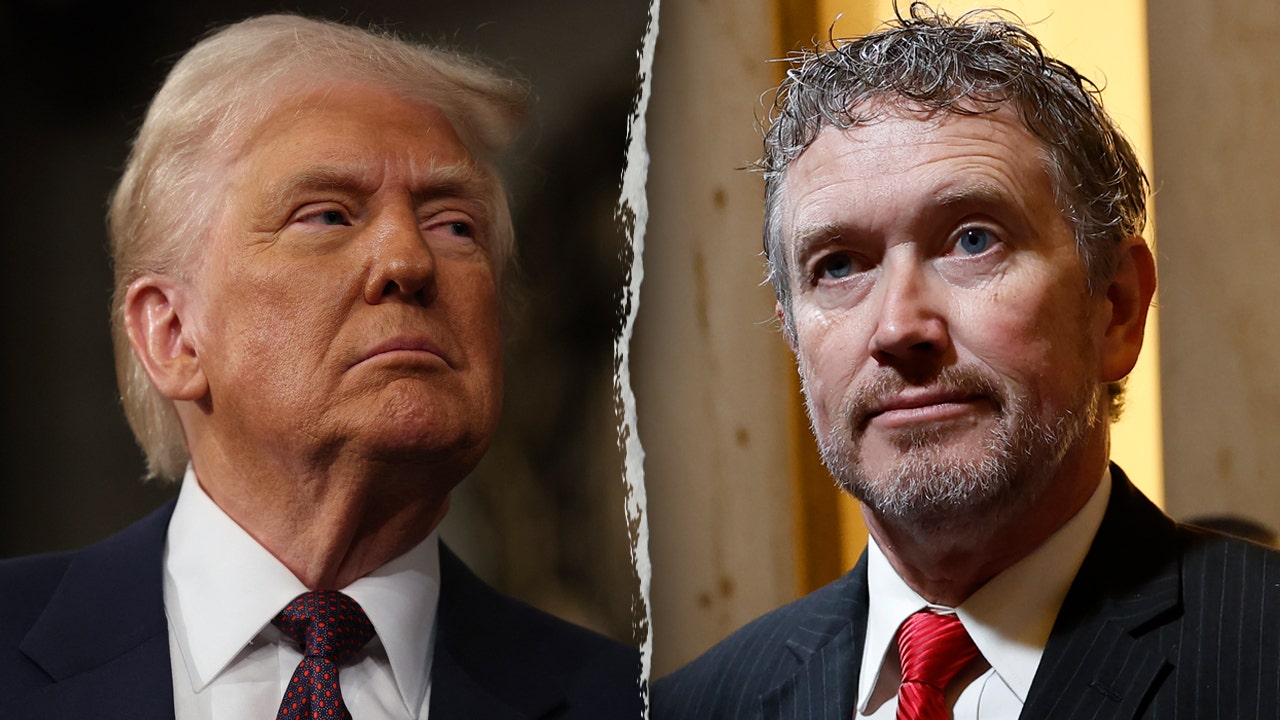Republicans want to give gig workers benefits. There’s a catch.

Should independent contractors get employment benefits? The question has fueled decades of legal and political battles — and it might finally be coming to an end for the roughly 58 million people who currently work as freelancers, contractors and gig workers across America.
Three Republican senators — led by Bill Cassidy of Louisiana, who chairs the chamber’s Health, Education, Labor, and Pensions (HELP) Committee — have introduced bills to expand benefits like health insurance and retirement savings for contractors. The legislation would protect companies from worker misclassification lawsuits if they offered contractors non-salary perks, and Republican Rep. Kevin Kiley (CA) introduced companion bills back in February.
Advocates of these so-called portable benefits argue that they support the realities of the current workplace. In 1947, Congress explicitly carved out independent contractors from the National Labor Relations Act’s definition of “employee.” Today, most contractors say they’d prefer to keep their independent arrangements but want more financial stability. Cassidy has hailed passing these bills a top priority for him this year.
The portable benefits most likely to pass now, however, are less robust and worker-friendly than some progressive Democrats were envisioning ten years ago. Back in 2015, tech entrepreneur Nick Hanauer and David Rolf, former SEIU president of the Seattle Local 775, pitched a proposal where employers would contribute $2 an hour to a “shared security system.”
Benefits would accrue by the hour, pool across multiple jobs, and be accessible whether someone worked for one company full-time or five part-time. A year later, Sen. Elizabeth Warren (D-MA) outlined a different approach: Instead of requiring employers to pay in, she proposed building public systems that would let workers take benefits like health care and retirement from job to job. In his final State of the Union address that year, Barack Obama also endorsed the general idea, emphasizing that “basic benefits should be just as mobile as everything else is today.”
But unions strongly opposed these efforts. Labor groups have long fought against worker misclassification, where wrongly designating employees as contractors allows employers to sidestep payroll taxes, unemployment insurance, minimum wage laws and other obligations. Unions view codifying portable benefits largely as a way to keep misclassifying workers and therefore cut them off from core workplace protections, including the right to unionize.
Unions and union-funded nonprofits argue that portable benefits offer a false choice between job security and flexibility, and point to examples like nurses and restaurant workers where employees can still enjoy more flexible environments. The portable benefits approach, they warn, will just hasten the outsourcing of work to contractors or encourage more companies to misclassify their staff. They point to lobbying efforts by companies reliant on contractors, like DoorDash and Lyft, as well as lobbying by advocacy groups funded by Instacart, Uber, and Grubhub.
For a time, it seemed that Democrats might fight for a more progressive version of portable benefits: Warren in her 2016 speech talked about extending union rights to temp and gig workers, and the Hanauer/Rolf proposal resembled how most European countries administer job protections. But the politics of the last seven years have instead shifted the party’s focus toward narrowing the legal definition of independent contracting and reclassifying more workers as traditional employees.
This approach is a cornerstone of the Protecting Right to Organize (PRO) Act, a union-backed federal labor reform bill that passed the House in 2021, was enthusiastically endorsed by President Joe Biden, and currently has 44 Democratic sponsors in the Senate. Yet the bill stands little chance of becoming law any time soon — and in the meantime, Republicans have taken up the issue with a more employer-friendly bent.
With a few exceptions, most Democrats have stopped talking about securing portable benefits for freelancers who want to remain independent. But the need to protect gig workers hasn’t gone away; both their numbers and their vulnerability continue to rise. The long-running policy battle may finally be winding down—just not in a way that necessarily helps them.
Federal whiplash over the “independent contractor” question
The fight over worker classification stretches back decades, but a good starting place is 2006, when a group of FedEx Home Delivery drivers in Massachusetts voted to unionize. The company refused to bargain, arguing the drivers were independent contractors and therefore ineligible for a union. Although the National Labor Relations Board sided with the drivers in 2007, deeming them employees eligible to unionize, the DC Circuit overturned that ruling in 2009, and asserted the NLRB “has no authority whatsoever over independent contractors.”
Undeterred, the Obama-era NLRB ruled in favor of a different group of FedEx drivers in 2014, declaring them to be employees, not contractors. (The NLRB does not treat rulings other than those from the US Supreme Court as binding.) By 2015, the Obama Labor Department also issued guidance clarifying that most workers should be considered employees. But the Trump administration reversed both efforts, and in 2017 the DC Circuit again sided with FedEx.
The pendulum swung back — to classifying more workers as employees — under Biden, only to shift again under Trump in his second term.
The politics started to change in 2018, when the California Supreme Court issued a landmark decision sharply limiting when companies could classify workers as contractors. In response, California lawmakers in 2019 passed a law known as AB 5, functionally codifying the decision’s stringent “ABC test”— a standard that defines most workers as employees. Under the ABC test, one can only be considered a contractor if they do work that falls outside the company’s typical line of business.
Gig companies began fighting back. In 2020, tech giants like Uber, Lyft, and DoorDash successfully spent $200 million on a California ballot measure to exempt drivers from AB 5 in exchange for requiring companies to provide contractors with some limited benefits. The gig companies also turned their attention outside of California, working aggressively to prevent laws like AB 5 from spreading.
In 2022 they prevailed in Washington state, which passed a law that provides limited benefits to gig workers in exchange for maintaining their independent contractor status. The Washington law was backed by the local Teamsters affiliate of drivers and the Washington State Labor Council, but vocally opposed by Sean O’Brien, the Teamsters’ international president.
Labor groups seeking to slow the momentum of portable benefits scored a win in 2021, when the strict “ABC standard” was included in the Democratic Party’s PRO Act. While a few tech-friendly Democrats continue to elevate the issue of protecting gig workers with portable benefits, most in the party have gone quiet on the subject, as doing so would be seen as undercutting a core goal of the PRO Act. The Democrats’ central focus now is on reclassifying gig workers as employees, not protecting contractors with flexible benefits.
Another political turning point came in 2023, when Utah lawmakers passed the country’s first voluntary portable benefits law, enabling companies to contribute benefits to independent contractors without affecting their contractor status or implying employer liability. Companies like Shipt and Lyft started piloting new benefits for Utah workers months after the law took effect.
In Pennsylvania, Democratic Gov. Josh Shapiro last year initiated a portable benefits pilot with DoorDash, and Georgia, Maryland, and Tennessee have taken their own steps this year. Supporters say these new voluntary laws will give companies the confidence to provide workers with more competitive working conditions, and they point to preliminary results from Pennsylvania, where 4,400 DoorDash drivers signed up for the savings account program, and earned $400 on average in their first year.
Labor leaders remain skeptical, warning this all may amount to little more than PR — or a way to treat workers like employees without providing real support.
The new benefits may be pretty lackluster
Independent contractors already have the ability to contribute to tax-deductible retirement savings plans known as Simplified Employee Pension plans, or SEP-IRAs. But under current law, employers can’t also contribute to those plans without risking legal challenges.
Cassidy’s new proposal, the Independent Retirement Fairness Act, would amend federal law to allow employers to voluntarily contribute, while shielding businesses from having to provide broader employment benefits or protections. It’s unclear whether companies would actually take advantage of this new freedom, though supporters point out that most private-sector retirement plans in the US are voluntary.
In terms of health insurance, independent workers can already obtain portable coverage via the Affordable Care Act but a quarter of contractors lack coverage, typically because it’s too expensive. This year, the average 40-year-old buying unsubsidized health insurance on the exchanges paid nearly $500 per month, while a family of four paid close to $1,600.
Yet Republicans are not proposing to increase subsidies to independent contractors seeking health insurance on the exchanges. Indeed they just approved slashing subsidies to the Affordable Care Act, meaning those with coverage could see their premiums skyrocket, and millions more lose insurance altogether.
Rather, Cassidy is looking to allow contractors to purchase pooled options known as Association Health Plans (AHPs), which might provide lower premiums but come with far fewer protections, for example, AHPs frequently lack coverage for preexisting conditions and preventative services. AHPs were originally meant to be options for businesses in the same industry or geographic area but in 2018 the Trump administration tried to expand them to let loosely affiliated groups — like freelancers — buy coverage together and avoid many Affordable Care Act requirements. A federal judge struck down that effort in 2019, saying it unlawfully stretched the definition of “employer” and was clearly designed to evade the ACA’s consumer protections.
Republicans reviving that effort now could both skim healthy, young individuals off the ACA exchanges, and mislead workers into plans far more skimpy and unregulated than they realized.
“In an ideal system employers would have no role in health insurance, but even in our current system, it typically would be better for workers to get subsidized health care on the individual exchanges than AHPs,” said Matt Bruenig, the head of the left-wing People’s Policy Project think tank. “These benefits don’t seem like they would be much improvement at all, and could make things worse if they are a trojan horse for badly regulated AHPs.”
Warren criticized Cassidy’s proposal, but did not elaborate regarding where she falls today on portable benefits. “I have always believed that all workers deserve access to quality health care and benefits, but unfortunately this Republican effort isn’t about getting workers the benefits they deserve,” she told Vox in an emailed statement. “This GOP legislation is about giving employers freedom to misclassify workers and deprive them of crucial workplace rights — including the right to form a union and be free from harassment.”
After nearly two decades of legal battles, Congress may finally be ready to declare victory on aiding contractors. But the workers at the center of the fight may end up with little more than they started with.

